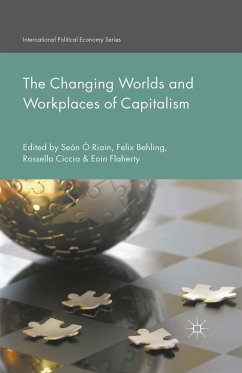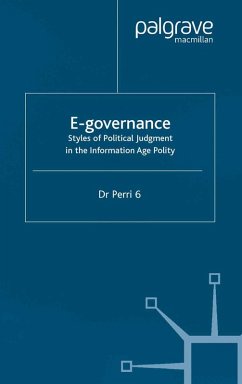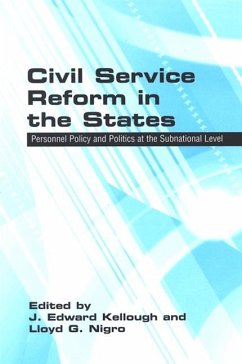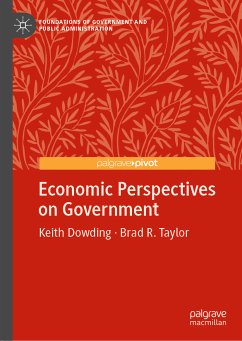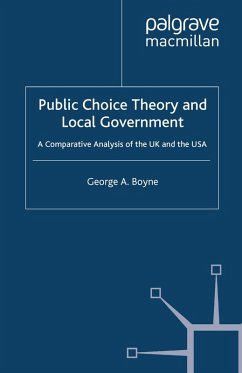
Public Choice Theory and Local Government (eBook, PDF)
A Comparative Analysis of the UK and the USA
Versandkostenfrei!
Sofort per Download lieferbar
72,95 €
inkl. MwSt.
Weitere Ausgaben:

PAYBACK Punkte
36 °P sammeln!
This book evaluates the validity of a key proposition of public choice theory: that competition is associated with superior performance by governmental organisations. Three forms of competition in local government are identified: competition between local authorities, competition between councils and private contractors, and competition between parties for political power. The extent and consequences of competition are assessed in both the UK and USA. The analysis is used to draw conclusions on the effects of competition and the validity of public choice theory.
Dieser Download kann aus rechtlichen Gründen nur mit Rechnungsadresse in A, B, BG, CY, CZ, D, DK, EW, E, FIN, F, GR, HR, H, IRL, I, LT, L, LR, M, NL, PL, P, R, S, SLO, SK ausgeliefert werden.



